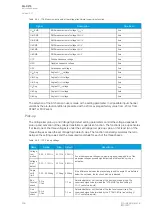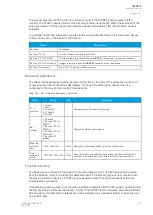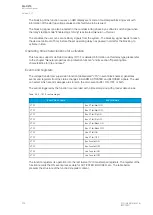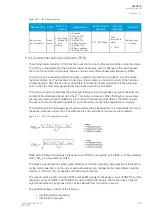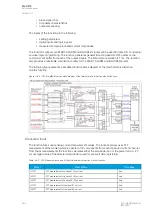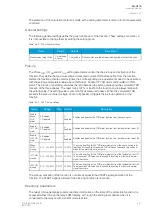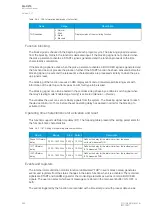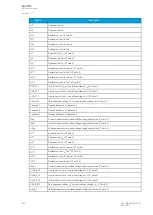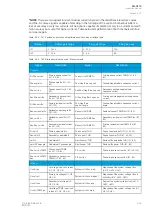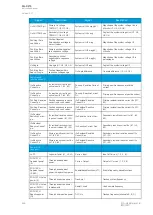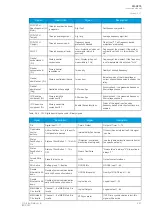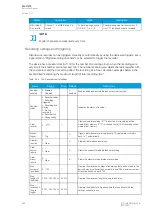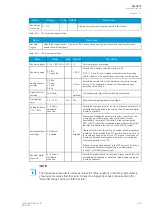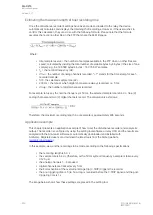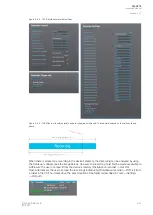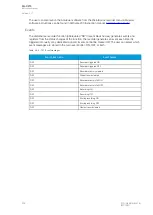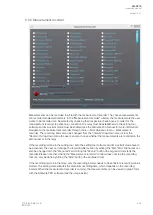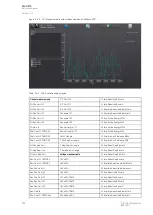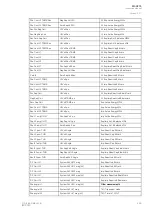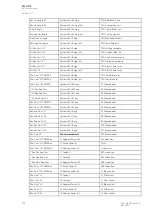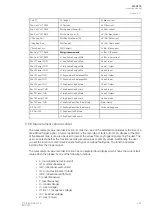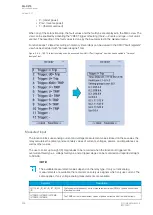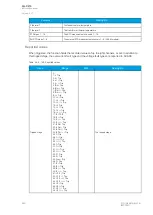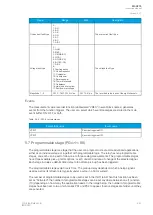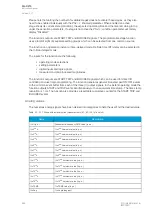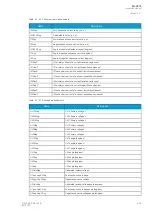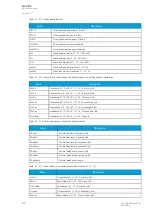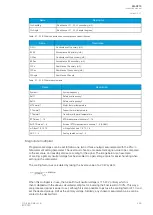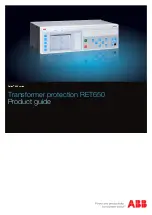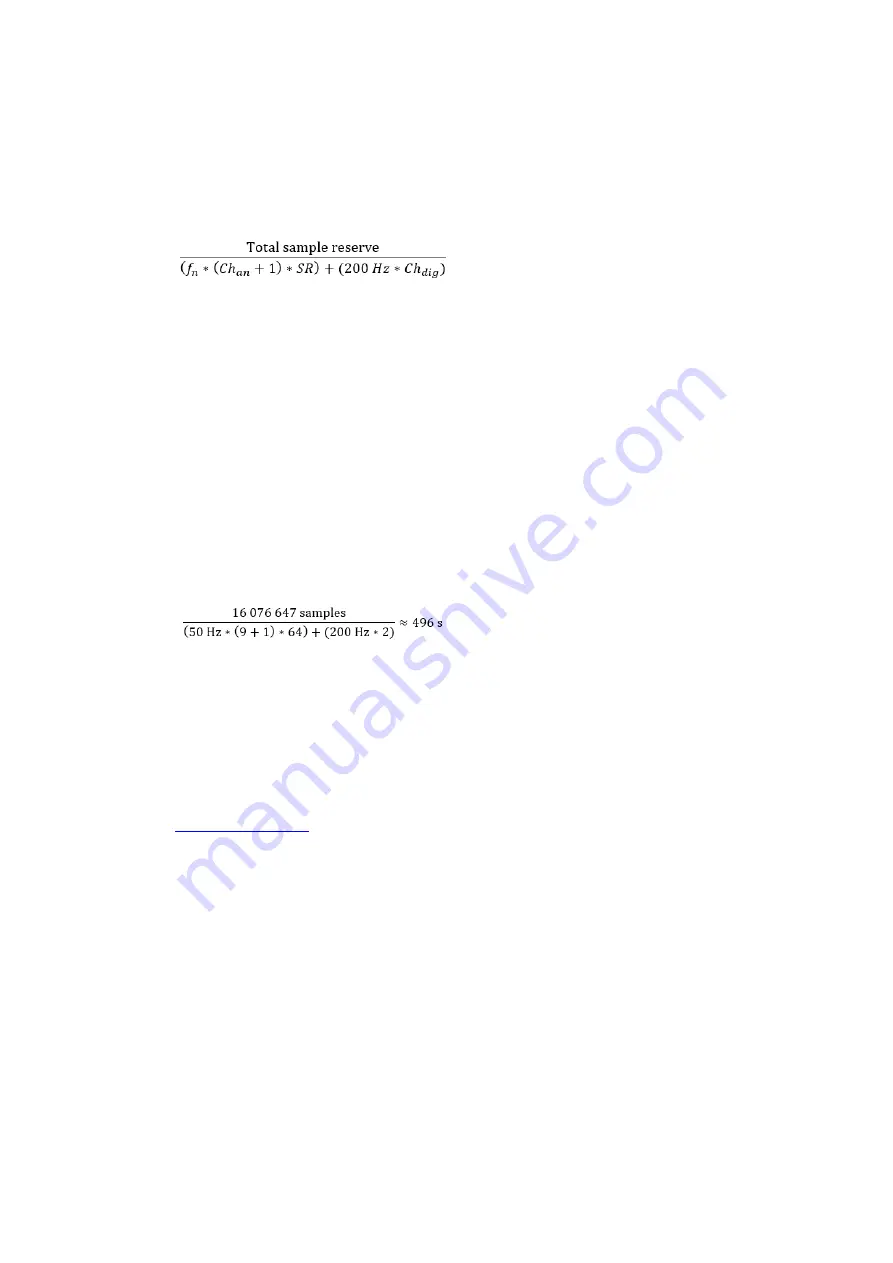
Estimating the maximum length of total recording time
Once the disturbance recorder's settings have been made and loaded to the relay, the device
automatically calculates and displays the total length of recordings. However, if the user wishes to
confirm this calculation, they can do so with the following formula. Please note that the formula
assumes there are no other files in the FTP that share the 64 MB space.
Where:
• total sample reserve = the number of samples available in the FTP when no other files are
saved; calculated by dividing the total number of available bytes by 4 bytes (=the size of one
sample); e.g. 64 306 588 bytes/4 bytes = 16 076 647 samples.
•
f
n
= the nominal frequency (Hz).
•
Ch
an
= the number of analog channels recorded; "+ 1" stands for the time stamp for each
recorded sample.
•
SR = the selected sample rate (s/c).
• 200 Hz = the rate at which digital channels are always recorded, i.e. 5 ms.
•
Ch
dig
= the number of digital channels recorded.
For example, let us say the nominal frequency is 50 Hz, the selected sample rate is 64 s/c, nine (9)
analog channels and two (2) digital channels record. The calculation is as follows:
Therefore, the maximum recording length in our example is approximately 496 seconds.
Application example
This chapter presents an application example of how to set the disturbance recorder and analyze its
output. The recorder is configured by using the setting tool software or relay HMI, and the results are
analyzed with the AQviewer software (is automatically downloaded and installed with
AQtivate). Registered users can download the latest tools from the Arcteq website
In this example, we want the recordings to be made according to the following specifications:
• the recording length is 6.0 s
• the sample rate is 64 s/c (therefore, with a 50 Hz system frequency a sample is taken every
312.5 µs)
• the analog channels 1...8 are used
• digital channels are tracked every 5 ms
• the first activation of the overcurrent stage trip (I> TRIP) triggers the recorder
• the pre-triggering time is 5 (ie. how long is recorded before the I> TRIP signal) and the post-
triggering time is 1 s
The image below shows how these settings are placed in the setting tool.
A
AQ
Q-C215
-C215
Instruction manual
Version: 2.07
250
© Arcteq Relays Ltd
IM00040

